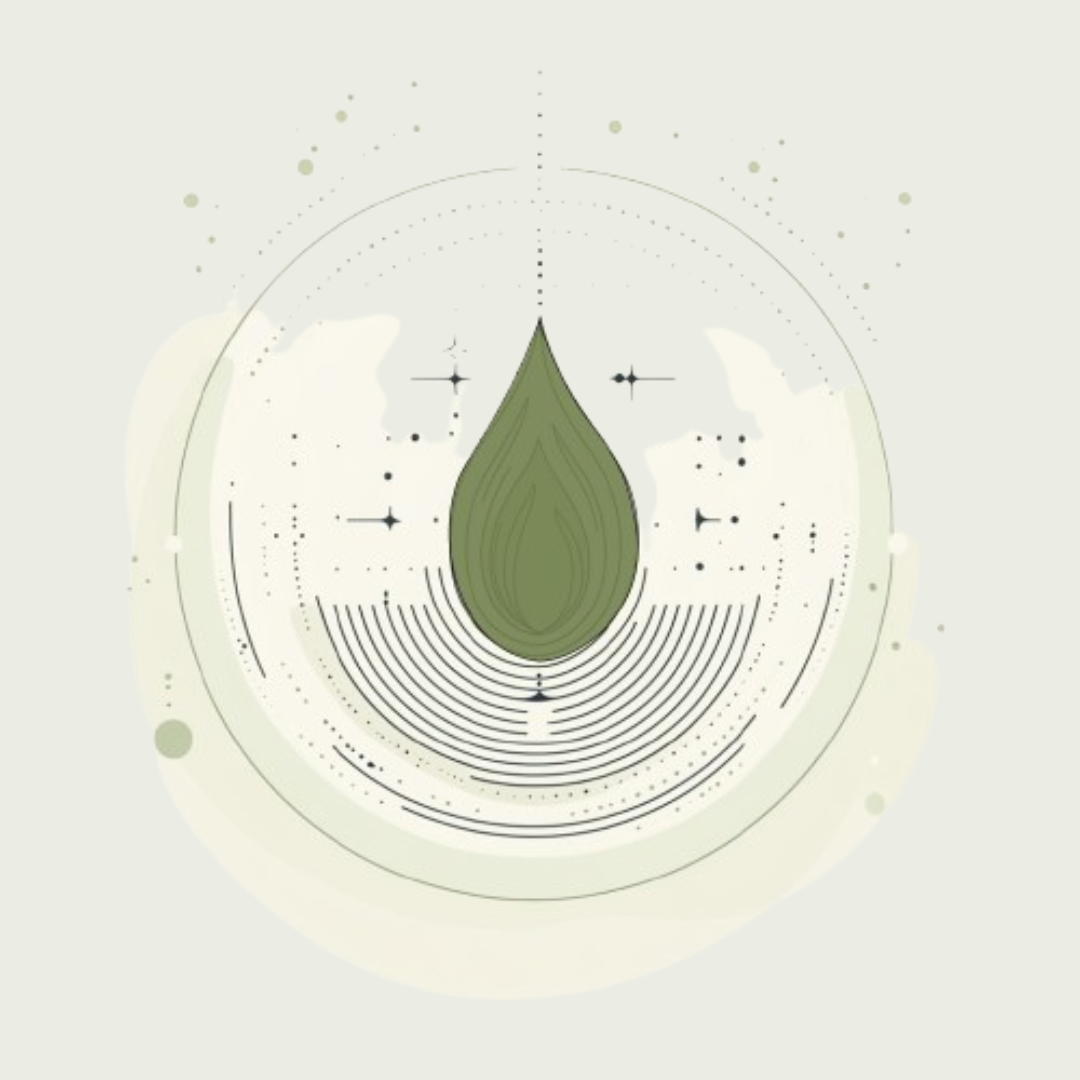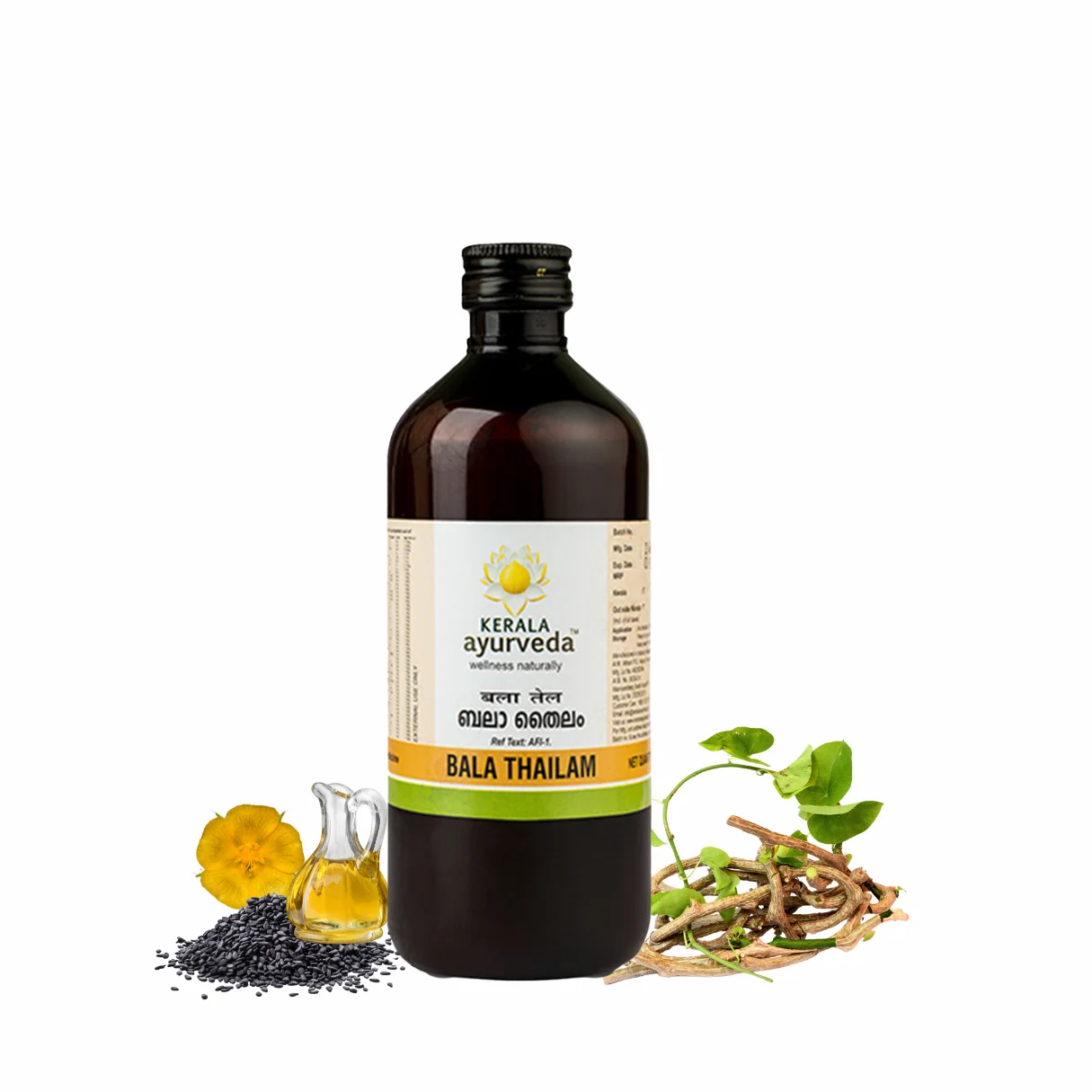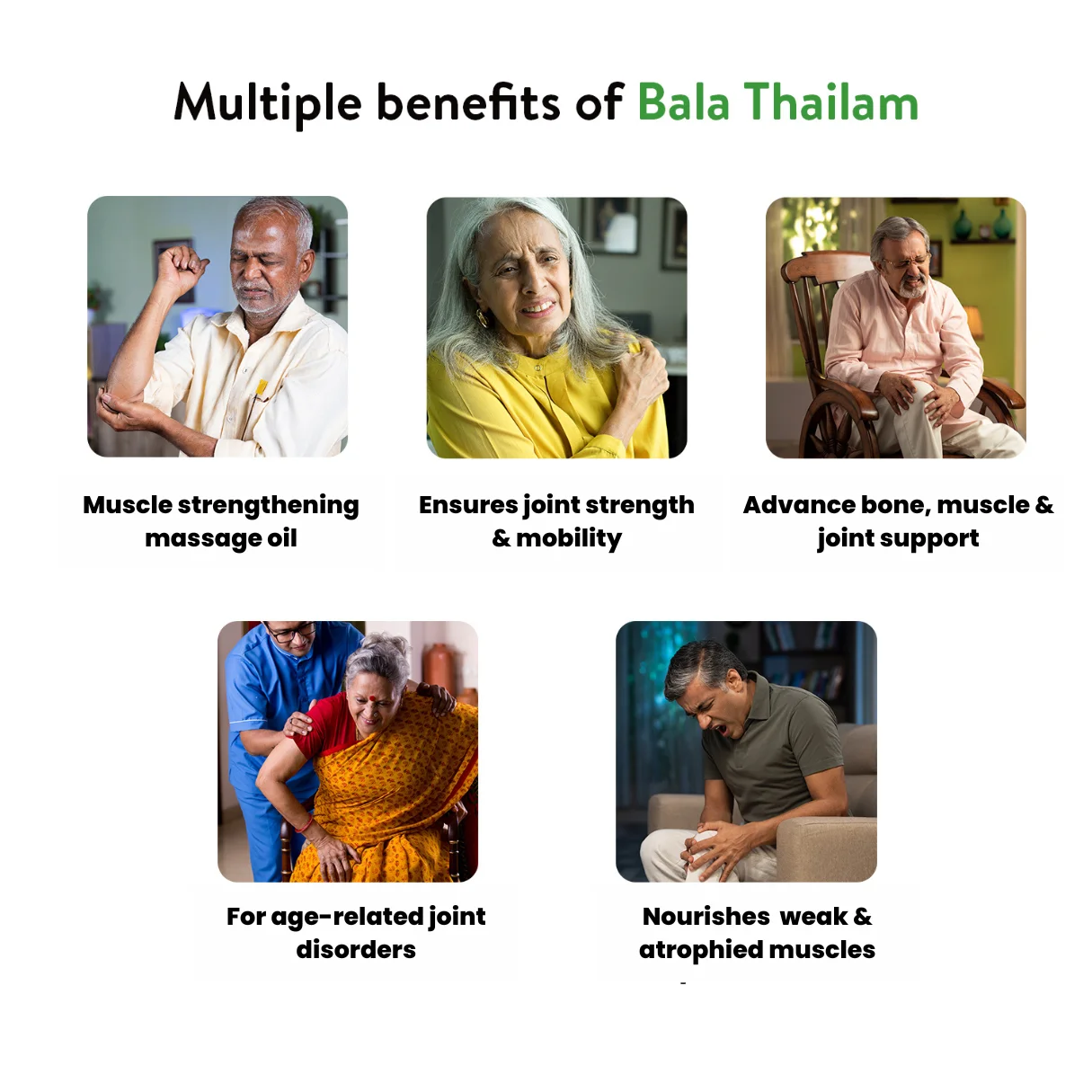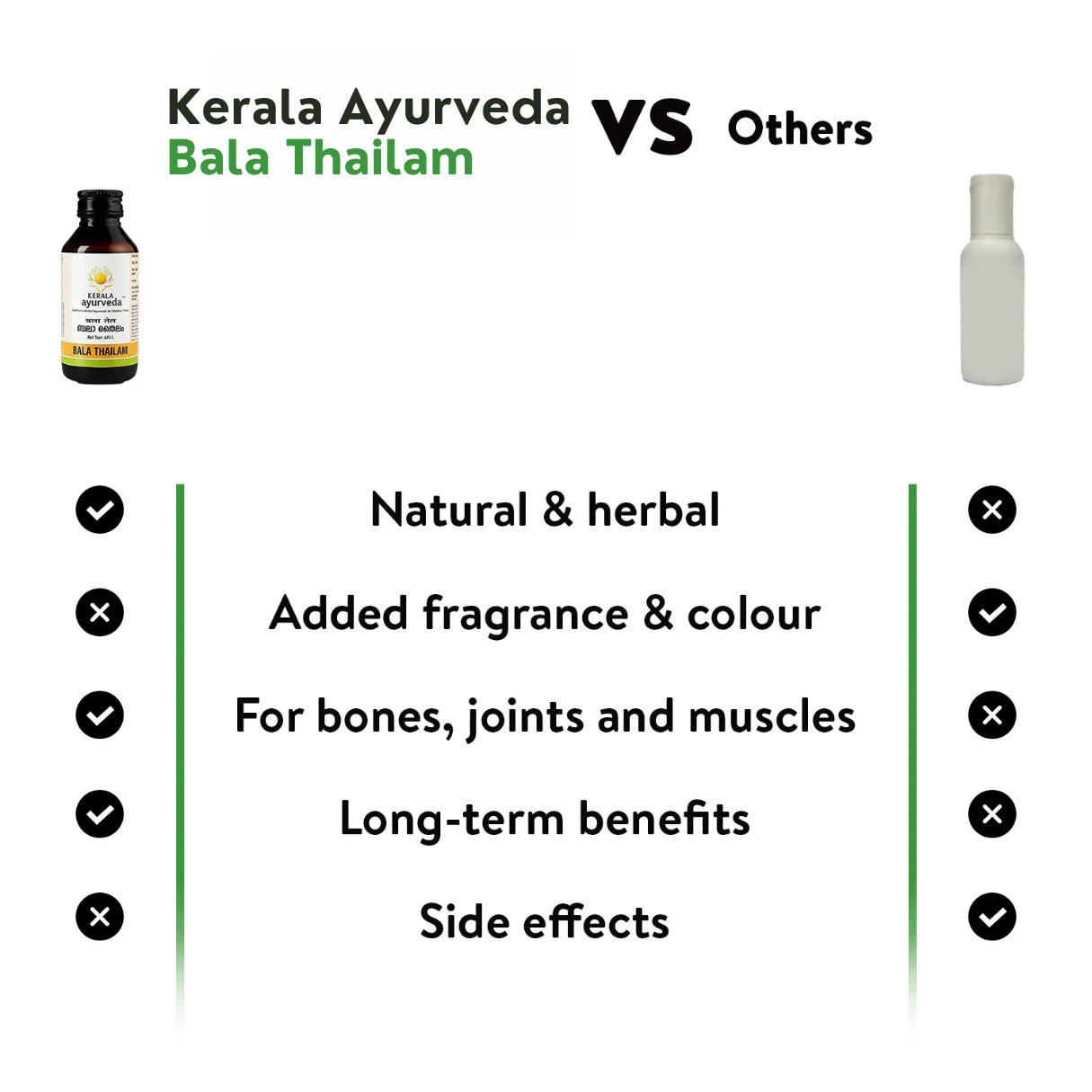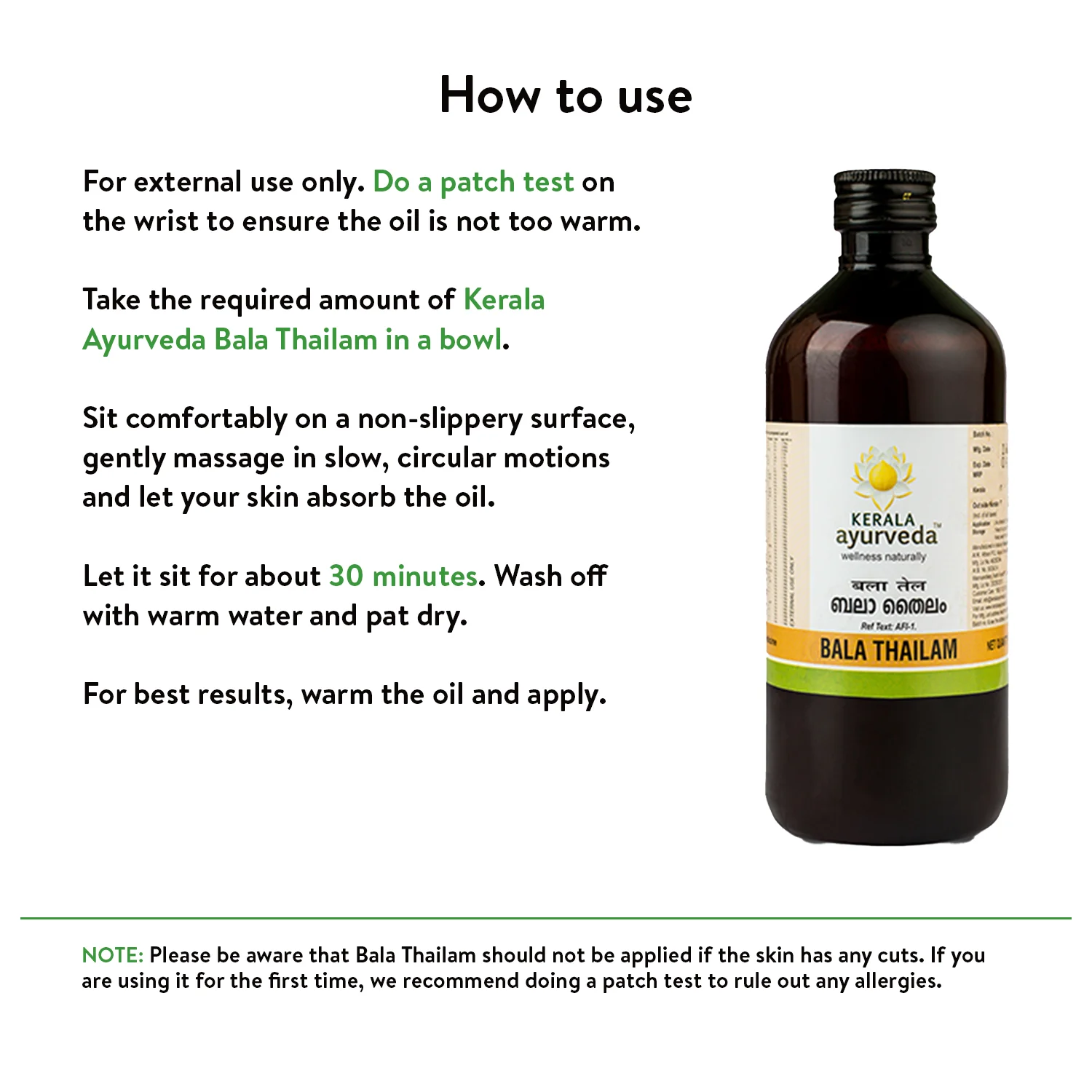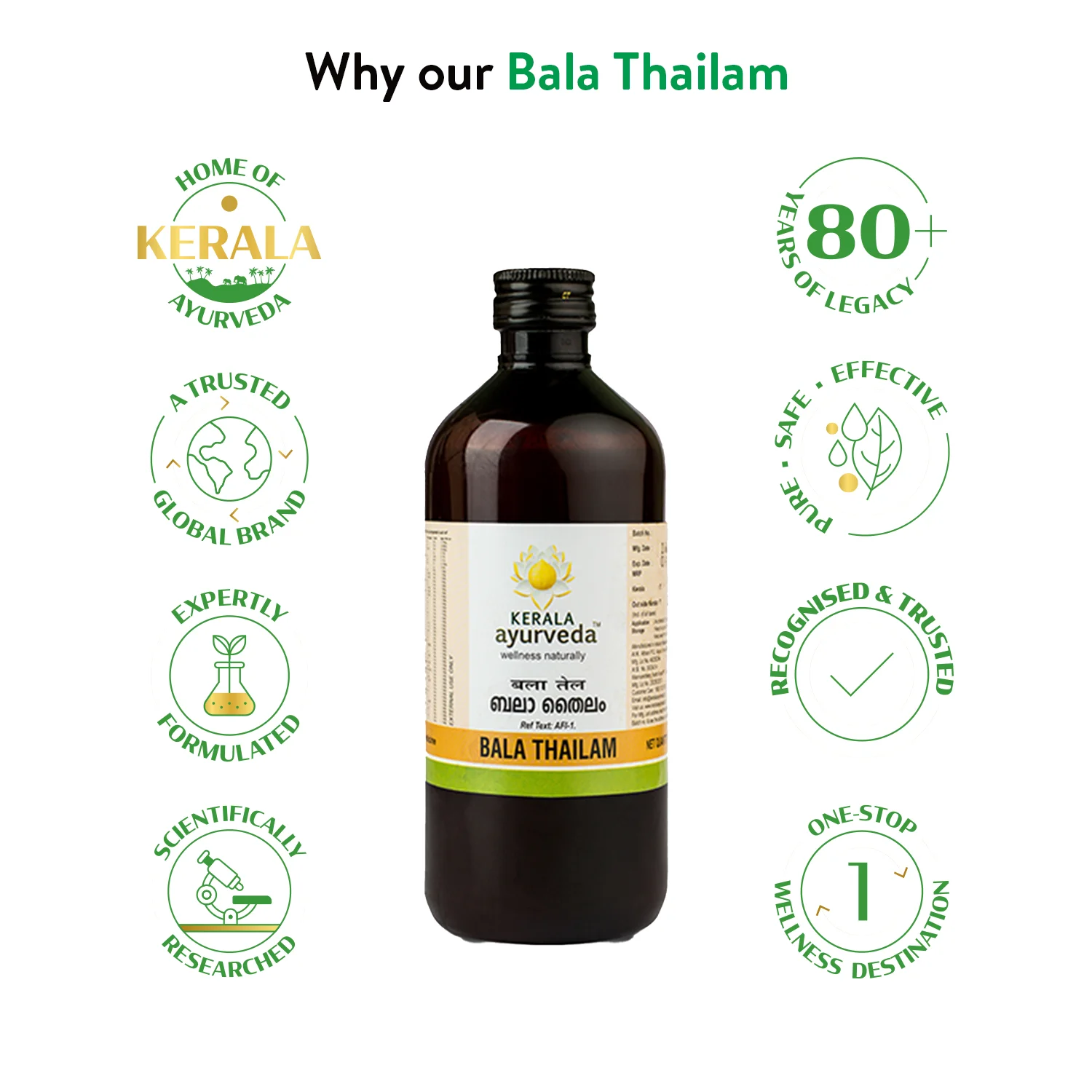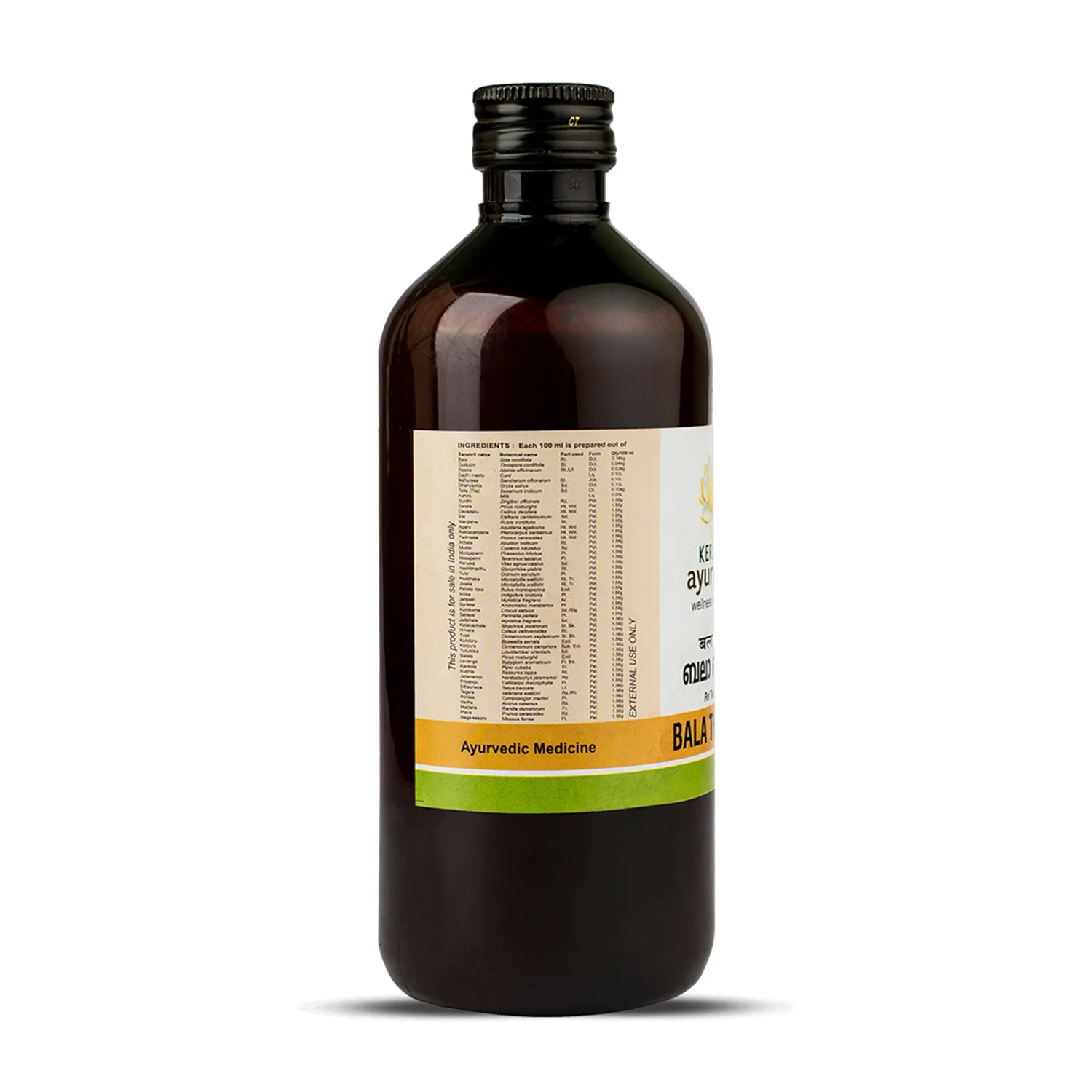-
Free Shipping
Bala Thailam (Oil)
Delivery within 2 to 4 days
Country of Origin: India
Are you concerned about your joint health? Do you fear that getting older will compromise your mobility? Are your bone health supplements not giving you the desired relief? Joint health depends on the bones and surrounding supporting structures like ligaments, muscles, and cartilage. Advancing age or trauma deteriorates both bones and the supporting structures of the joint. Kerala Ayurveda Bala Thailam is an excellent muscle and joint strengthening oil that nourishes bones and associated structures, rebuilds weak and atrophied muscles, and revitalises overused joints. This muscle-reinforcing massage oil has herbs like Heart leaf Sida or Bala, Giloy or Guduchi, Lesser galanga or Rasna, Sesame or Tila, Indian madder or Manjishta, Sugar cane essence or Ikshurasa, Curd, Milk, and Sesame Oil. It helps strengthen your joints to lead an active and productive life.

Key Benefits
Ingredients
How to Use?
- Manufactured by: Kerala Ayurveda Limited, Athani Post, Aluva, Ernakulam District, Kerala – 683585, India
- For Queries, Contact: Customer Care: 1800 103 5790; Address: Athani Post, Ernakulam District, Kerala - 683585, India; E-mail: info@keralaayurveda.biz
Can we use it for massaging kids?
Yes, you can. In fact, this oil massage is quite beneficial for the growth and development of kids. You must do a daily body massage for your baby, in the mornings, especially ear, head, and feet.
Do we need to warm the oil before applying?
Yes, it’s better that you warm the oil daily and leave it on for thirty minutes. The oil has great absorption properties and is highly recommended in muscular and neurological ailments.
How to apply this oil on the kid's body?
Since a child’s skin is quite delicate, it’s best that you use small quantities of the oil and keep the temperature as lukewarm so that you don’t irritate the skin. Massage with moderate pressure, along the back, shoulders, and the head. Do it daily, for thirty minutes and follow up with a wash with warm water.
Can Bala thailam be used in the Nasya procedure?
Bala Thailam is mostly used in Nasya procedure, which means it’s instilled through the nose, and it’s quite beneficial in treating diseases that affect the eyes, ears, nose, face, and head.
Is Bala Thailam internally consumable or only for external applications?
This oil can be used for internal or external purposes like Nasya, shirovasti and sneha vasti. Its application depends on the severity and intensity of the disease. The oil is quite renowned for treating neurological diseases and arthritis.


